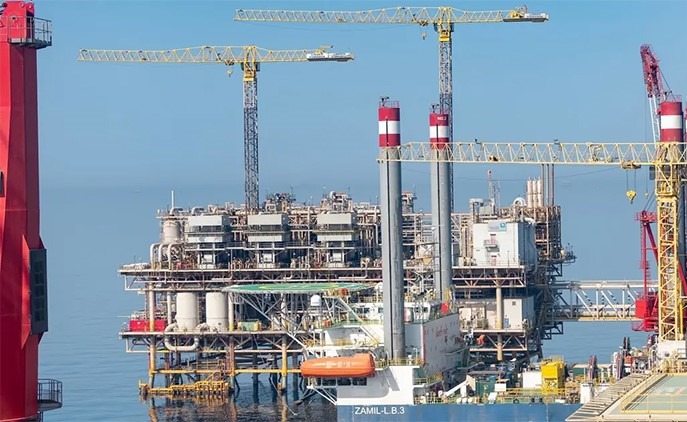Oil prices experienced a rise of up to 1% Friday due to ongoing tensions in the Middle East following Houthi attacks on ships in the Red Sea. However, concerns were raised about the efficacy of OPEC in supporting prices following Angola’s decision to withdraw from the organization.
As of 04:09 GMT, Brent crude futures increased by 1.1%, or 86 cents, reaching $80.25 per barrel. Similarly, US West Texas Intermediate crude futures rose by 1.1%, or 81 cents, reaching $74.70 per barrel. Both benchmarks recorded over a 4% increase for the second consecutive week, primarily driven by apprehensions surrounding shipping in the Red Sea, reports Al-Anba daily.
Leon Li, an analyst at CMC Markets in Shanghai, suggested that oil prices might see a recovery due to geopolitical conflicts and the impending implementation of OPEC production cuts. He anticipated a potential small supply gap in January, predicting the price of West Texas Intermediate crude to rise between $75 and $80 per barrel.
The rise in oil prices is linked to increasing concerns about shipping in the Red Sea, with more companies diverting routes or suspending sailings to avoid Houthi attacks supporting the Palestinians. The disruptions in global trade through the Suez Canal, responsible for approximately 12% of global trade traffic, are contributing to the upward pressure on prices.
While the impact on oil supplies has been limited so far, given that the majority of Middle East crude is exported through the Strait of Hormuz, the situation remains tense. The United States initiated a multinational operation to protect trade in the Red Sea on Tuesday, prompting warnings from the Houthis against continued attacks.
Notably, Angola’s decision to withdraw from OPEC, citing a misalignment of interests, has cast doubt on the organization’s ability to support oil prices. The move comes after Angola objected to the broader OPEC+ group’s decision to reduce its oil production quota for the year 2024. In recent months, the Saudi-led group has advocated for additional production cuts to boost oil prices. Members of OPEC+, including Saudi Arabia and Russia, agreed to voluntary production cuts, accounting for over 40% of the world’s oil production.

















